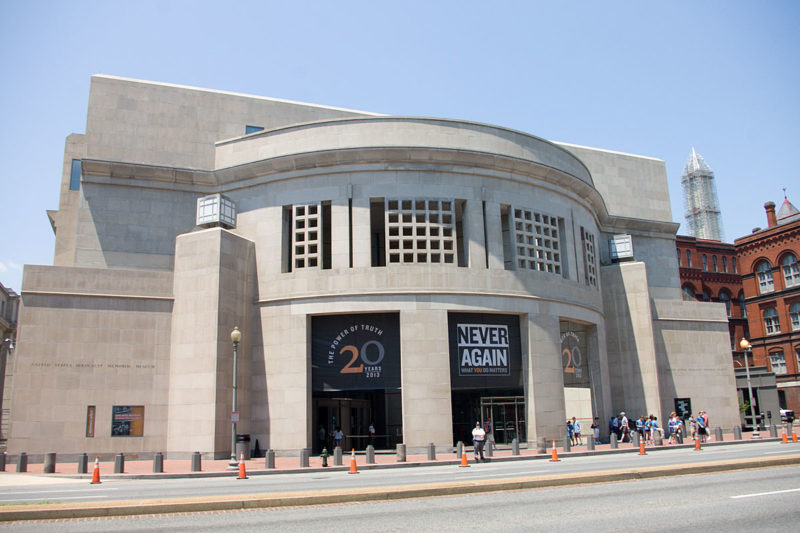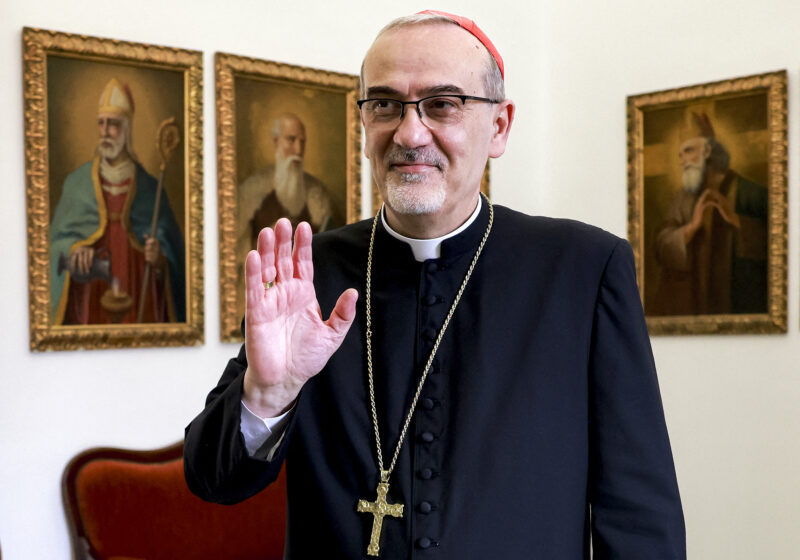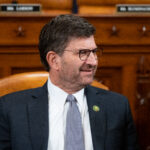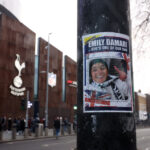JVP panel featuring Tlaib urges an intersectional approach to antisemitism
The Jewish Voice for Peace panel on antisemitism was criticized for including only two Jewish panelists out of five

Carlos Osorio/AP
Rep. Rashida Tlaib (D-MI)
Rep. Rashida Tlaib (D-MI) and columnist Peter Beinart advocated for an intersectional approach to tackling antisemitism during a heavily scrutinized Jewish Voice for Peace event on Tuesday evening.
Prior to Tuesday, JVP faced significant criticism over the event, which featured just two Jewish panelists — Beinart, a New York Times contributing opinion writer and Jewish Currents editor at large, and moderator Rabbi Alissa Wise. Both Tlaib and fellow panelist Marc Lamont Hill, a professor at Temple University, have faced accusations of antisemitism and are vocal critics of the State of Israel.
University of Illinois at Chicago professor and activist Barbara Ransby also participated in the panel discussion. Lamont Hill did not attend live, and instead offered pre-recorded video answers to Wise’s questions.
Tlaib — who emphasized to Jews in the audience near the end of the event that “I don’t hate you, I absolutely love you” — said that her approach to antisemitism was formed by both a high school curriculum addressing African-American history and her time working as an aide to then-Michigan State Rep. Steven Tobocman, who is Jewish.
“I realized just how antisemitism was so connected to my freedom, to my right to live as a Muslim in our country, as a child of immigrants,” Tlaib said. “I really realized just the connection of the anti-Muslim, anti-blackness, anti-immigrant and Jewish movement that was out there, and… if you open the curtain, it’s the same people coming after us.”
Later in the event, Tlaib expanded on this approach.
“I also think it’s really important to really center something I heard from one of my beautiful Black neighbors, who teach me more and more about fighting racism, including antisemitism and so much more, is that there’s no hierarchy of who’s hurting the most,” the Michigan congresswoman said. “When we do lead with compassion, we want to center that on everyone should be truly free… and how that is all interconnected around human dignity.”
Speakers throughout the event emphasized that antisemitism cannot and should not be addressed separately from other forms of discrimination.
“So many of the contemporary movements of young activists today are resisting the silos that previous generations may have succumbed to, to say that our freedom and justice for all people are bound up together,” said Ransby. “So we can’t really just ask the question ‘what does a world without antisemitism look like?’ We have to ask the question ‘what does a world without imperialism look like? What does the world without settler colonialism look like? What does a world without hetero-patriarchy look like?’”
The majority of the event focused on right-wing manifestations of antisemitism, particularly from President Donald Trump and white supremacists. Lamont Hill alluded to issues of left-wing antisemitism during his initial remarks, urging activists to cut ties with those who advocate for antisemitism, but Beinart was the first to address the subject head-on, nearly an hour into the event.
“There is antisemitism on the left as well,” Beinart said. “It’s very important that as we fight against the greatest antisemitic threat, which is from the white nationalist right, that we also show a great concern to make sure that progressive movements are not tainted by antisemitism.”
Tlaib later concurred.
“If anybody comes through my doors or through any form to try to push antisemitism forward, you will hear me being very loud with my bullhorn to tell them to get the hell out,” Tlaib said. “Peter’s right, there is so much — I see in Islamophobia — it is bipartisan supported. You see antisemitism, it is very much an issue of the left, the right… it is an issue in our country. And this is what scares them, is when we work together like this.”
Beinart dismissed as “deeply disingenuous” the criticisms JVP faced for including only two out of five Jewish panelists in the event.
“Everybody in the Jewish community really wants allies,” he said. “The alliances where we find the greatest protection are the alliances with people like ourselves who know what it’s like to be a stranger. And that includes especially Palestinians who live without basic rights in the West Bank and Gaza and with Palestinian Americans whose right to free speech is being threatened.”
But the columnist also pushed back against JVP’s anti-Zionist stance, saying that “cultural Zionist[s]” who support a binational Jewish/Palestinian state should be included in progressive spaces.
“It’s important also that we make that point that [the] exclusion [of Zionist Jews] is also something that we oppose,” he said.







































































